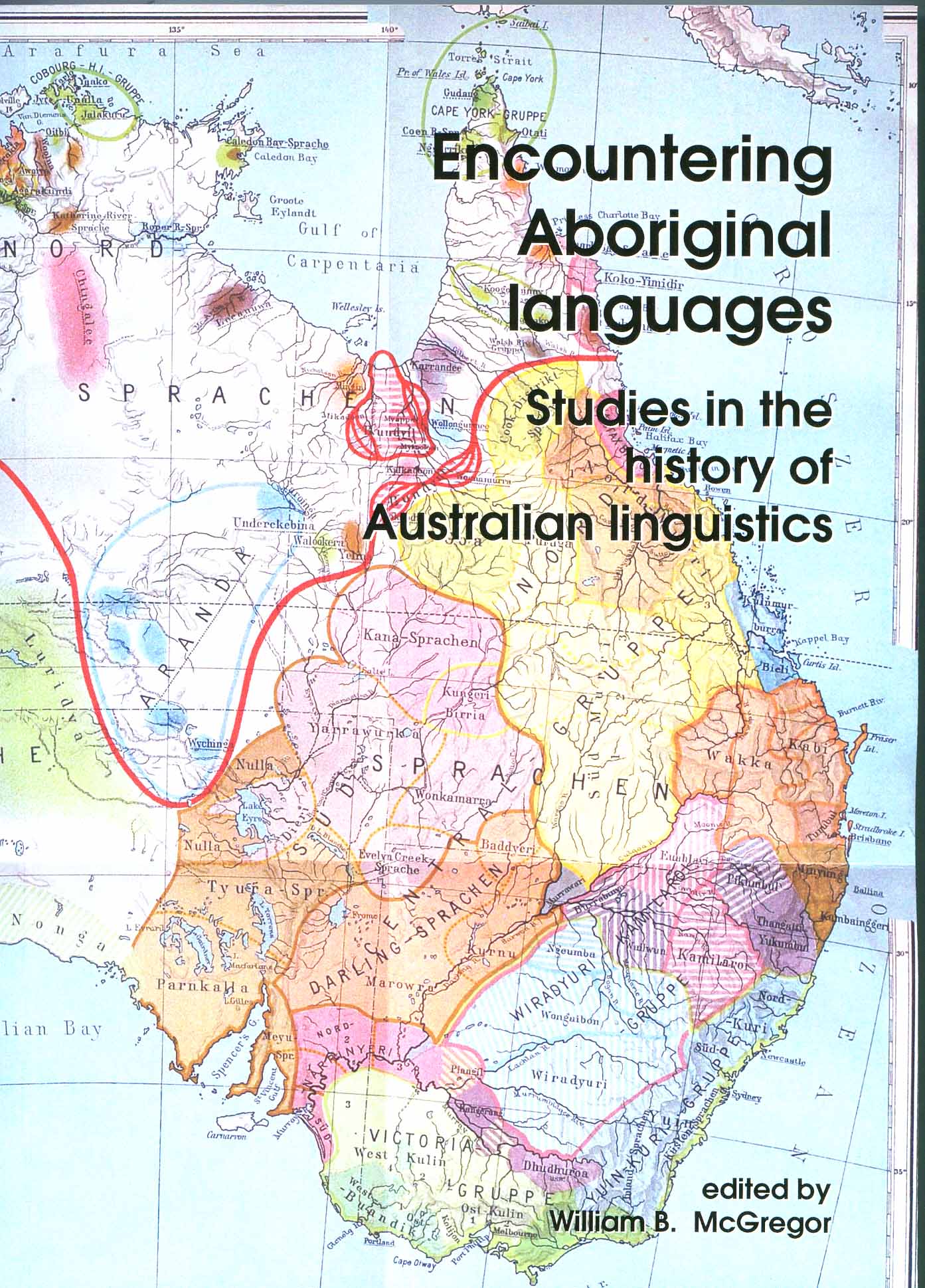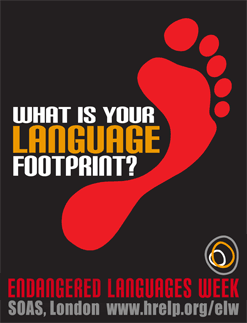Things move fast in the endangered languages world. Five years is a long time, especially the past five years when so much has happened. Last speakers of languages have passed away, such as the late Marie Smith Jones who was the last speaker of Eyak and who died on 21st January 2008 (her death garnered much publicity as signalling the first native Alaskan language to become extinct — a Google search of “last speaker of Eyak”, for example, returns 537 hits, led by such big names as the BBC, the Economist and so on). Other less publicised losses have occurred, such as Jawoyn from the Northern Territory, whose last fluent speaker died in July 2007.
But really good stuff has happened in the last five years too: millions of dollars of research funds have been made available for work with endangered languages through the Volkswagen Foundation’s DoBeS project, the NSF-NEH DEL scheme, and the ELDP grants administered by SOAS. There have been lots of grass roots activities to document, archive and support endangered languages, and a whole new group of committed students have entered the field via training programmes at ELAP at SOAS and University of Hawaii, among others. There have been summer schools, like the 2004 DoBeS summer school in Frankfurt, with more on the way including the 3L summer school and InField summer institute starting in June this year. If you add in the conferences, workshops, training courses, books, articles, media coverage, blogs and so on it is pretty clear that endangered languages has become a really hot issue, especially since 2003 or so.
Courtesy of the KITLV Royal Netherlands Institute of Southeast Asian and Caribbean Studies I have just received a copy of Encyclopedia of the world’s endangered languages edited by Christopher Moseley and started dipping into it. I am writing a proper review of the book for the BKI Bijdragen tot de Taal-, Land- en Volkenkunde, but thought I would share some initial impressions here.
2nd Sydney Papuanists’ Workshop Update
The program for the 2nd Sydney Papuanists’ Workshop is now up at http://conferences.arts.usyd.edu.au/program.php?cf=19. There will be lots of interesting papers from Papuanists from around Australia and overseas. The discussion session on Saturday afternoon on the theme ‘giving back to the community’ may be of particular interest to fieldworkers outside the Papuanist community. If you’re interested … Read more
The times they are a changin’
At the Australian Languages Workshop 2008 held in March at the ANU field station at Kioloa (recounted in Jane Simpson’s blog post) there was an after-dinner quiz organised by Harold Koch. It consisted of a series of trivial pursuit style questions to identify scholars who had published on Australian Aboriginal languages (some recent, some not so recent). The questions went something like this (some of these are ones I remember from Harold’s quiz, others I have made up):
Identify the following six people each of whom published on Australian Aboriginal languages and:
- also wrote a book on scurvy in sheep
- published on middle-Indo-Aryan under another name
- prepared a handbook for coroners
- was a jackaroo on a station in the north-west of Western Australia
- is an expert in Ergodic Theory and has published a book on Multidimensional Continued Fractions
- spent time in an Australian internment camp as a Nazi spy during the second world war
The answers to most of these questions are to be found in a new 526 page book published this month by Pacific Linguistics and edited by William B. McGregor entitled Encountering Aboriginal languages: Studies in the history of Australian linguistics. My copy just arrived in London and I am having trouble putting it down, the contents are so interesting.

5th European Australianist workshop – Eva Schultze-Berndt
[from our woman in Kununurra, Eva Schultze-Berndt]
This email is a call for expressions of interest in a 5th European Australianist workshop, to be held at the University of Manchester in September 2008.
The suggestions for dates are either of the following:
a) Su/Mo, 14th/15th September. This is adjacent to the LAGB conference in Colchester/Essex from 10-13 Sept; train travel between Colchester and Manchester is about 5 hrs.
b) Fr/Sat, 19th-20th September.
c) Sat/Su, 20th-21st September.
Of course depending on the number of participants we might only need one day. But hopefully many of you will be able to come!
The suggestion for a workshop theme is “Discourse, prosody and information structure in Australian languages”. As usual, participants would be free to present papers not related to this theme.
I will be able to apply for a very limited amount of funding towards accommodation and travel costs of students or other participants who are not in full-time employment (success not guaranteed of course). Please indicate if you are interested in participating and belong to this category.
Your language footprint
One of the events which featured in Endangered Languages Week 2008 at SOAS was called What is your language footprint?. This concept of a Language Footprint and the ideas behind it were developed by David Nathan, and presented by his team that also included Chaithra Puttaswamy and Juliette Rutherford (Tom Castle created the dramatic poster).
It has since attracted the attention of several bloggers, including Bulanjdjan (Langguj Gel) and Hoyden about town.
The basic concept is simple. A language footprint is the influence of those speaking a dominant language on the behaviour of speakers of other languages. In any communication, if your choice of language makes another person shift from their language to yours, you have made a language footprint. The concept is intended as a metaphor similar to the”carbon footprint”notion and, like it, includes the potential that individuals can reduce or offset their language footprint. You can reduce your language footprint by:
Chirac Foundation sponsors Endangered Languages event
The recently established Fondation Chirac in collaboration with the Musée du quai Branly and Unesco is organising a one-day public event to be held on Monday 9th June in Paris called “SOROSORO pour que vivent les langues du monde!” (SOROSORO long live the languages of the world! ). Sorosoro in the Araki language of Vanuatu means “breath, word, language”. The event will highlight the current situation of language diversity and endangered languages and includes presentations by linguists from France, Gabon, Guatemala, UK and Vanuatu.
The programme begins at 3pm in the Claude Levi-Strauss Theatre at the Museum and includes the following presentations (my translations of the French original):
OzCLO – Inaugural Computational and Linguistics Olympiad
The Australian Computational and Linguistics Olympiad (OzCLO) is a linguistics competition aimed at high school students from years 9 to 12. The state rounds will be held at University of Sydney, and University of Melbourne on the afternoon of June 25th 2008, with the national round to be held (in each location) on August 6th … Read more
Endangered Languages Outreach
Well, Endangered Languages Week 2008 has drawn to a close, and apart from feeling knackered after a week of full-on EL activities, we at SOAS reckon it all went pretty well. We had a lot of fun, especially during the kick-off debate about What is your language footprint? when the “for team” of David Nathan, Chaithra Puttaswamy and Juliette Rutherford were soundly defeated by the “against team” of Peter Austin, Julia Sallabank and Peter Sutton. Superior debating skills combined with some bad jokes won the day. Another highlight of the week was the UK Premiere of the film “The Linguists” which was attended by over 90 people, many of whom got to meet in person K. David Harrison, one of the dynamic duo who star in the film.
Our main goal for EL Week 2008 was showing what we are doing in EL research, teaching, and archiving at the Hans Rausing Endangered Languages Project and communicating with as wide an audience as possible. We feel we achieved that, both in the real and virtual interactions we had with visitors, most of whom have never come to Project activities before. Some students even travelled from Paris to attend the workshops and films. We also made contact with the Subject Centre for Languages, Linguistics and Area Studies which is a publicly funded service, providing UK-wide support and services for higher education in these three areas. They featured EL Week 2008 on their website and mailed out a special e-bulletin about our activities to their 3,000 subscribers – as a consequence, a number of teachers came to SOAS during the week, and we now have great opportunities for future collaboration.
So, here are some statistics about the week (all numbers are approximate):
Indigenous languages – staying in the background
Mirabile dictu… The 2020 summit background material on Indigenous Australia,
Fluency in revival situations – John Giacon
[From John Giacon]
As noted in the blog post on John Hobson’s lecture, the Koori Centre has been one of a number of forces which have pioneered major developments in Indigenous Language education in NSW and other parts of Australia. I want to comment on two sentences in the review:
‘Indigenous children need qualified teachers who are fluent speakers of the language’ and ‘Majors in Indigenous languages just aren’t on offer [in Universities]’.
I will use my experience of Gamilaraay Yuwaalaraay to reflect on these. I started working in the languages 12 years ago. Sadly, I have not met anyone who has or had elementary fluency from ‘handed down’ language. For instance I have met a number of people who know that yanay is ‘go/walk’, but none who knew the past-tense form ‘yananhi‘ or the various continuous forms. Nor have I met anyone could productively use the locative suffix for meanings like ‘in, on, at’. Just two examples of the many elements you would need to know for even moderate fluency. People who have done courses now know these elements of Gamilaraay Yuwaalaraay, and much more. Fluency is growing, slowly.
So, the fluent teachers necessary for language teaching are not there, ‘in the community’. However the rules for forming past tense and the forms and meaning of the locative suffix, and much more, are in Corinne Williams’ Grammar of Yuwaalaraay (1980). And there is much more information that she did not have time to process in tapes and other Gamilaraay Yuwaalaraay sources. So if those sources are used, then resources and courses can be developed: for instance the Gamilaraay Yuwaalaraay Yuwaalayaay Dictionary, the ‘Speaking Gamilaraay‘ course at the Koori Centre/University of Sydney and the TAFE Certificate 1 in Gamilaraay and Gumbaynggirr courses.
 Follow
Follow